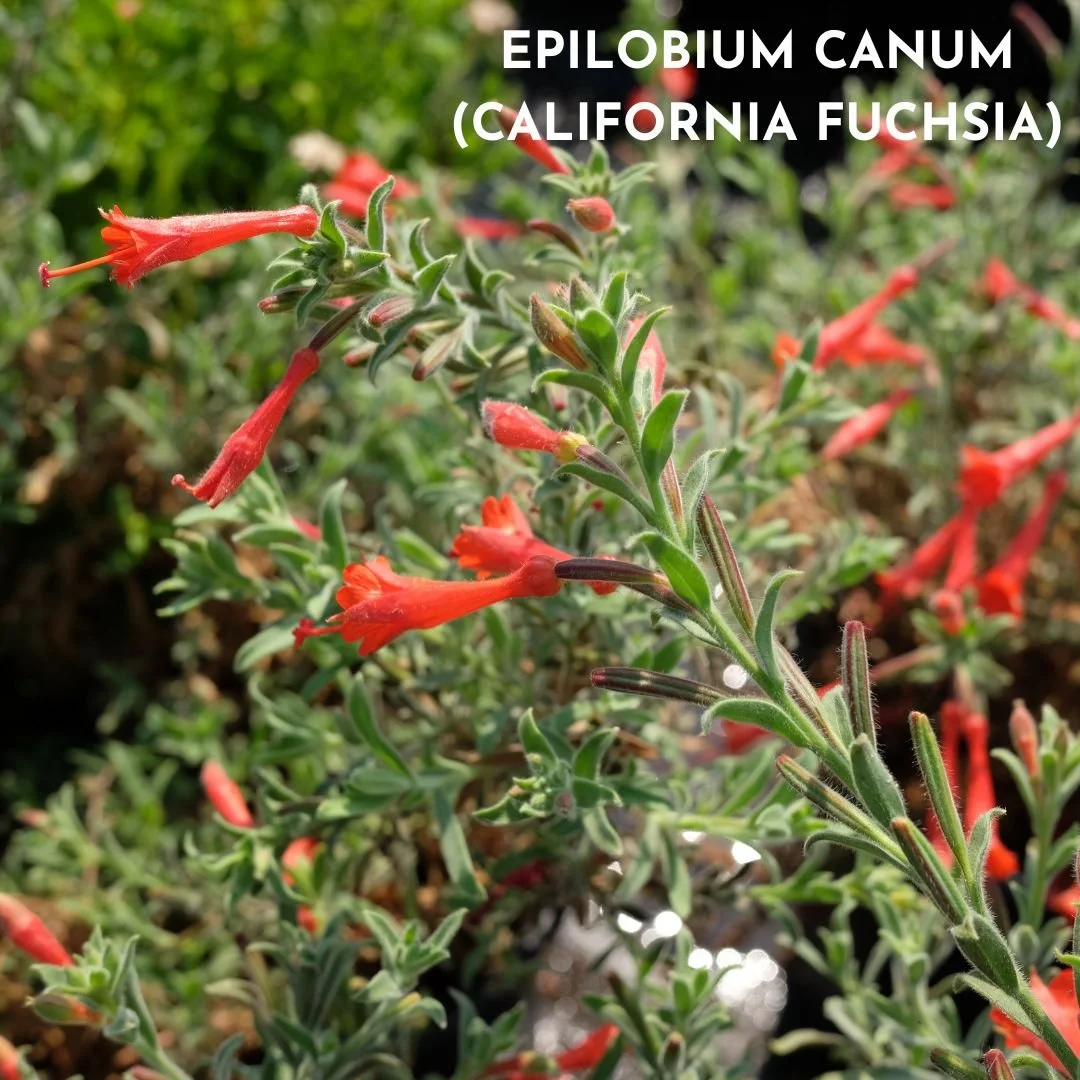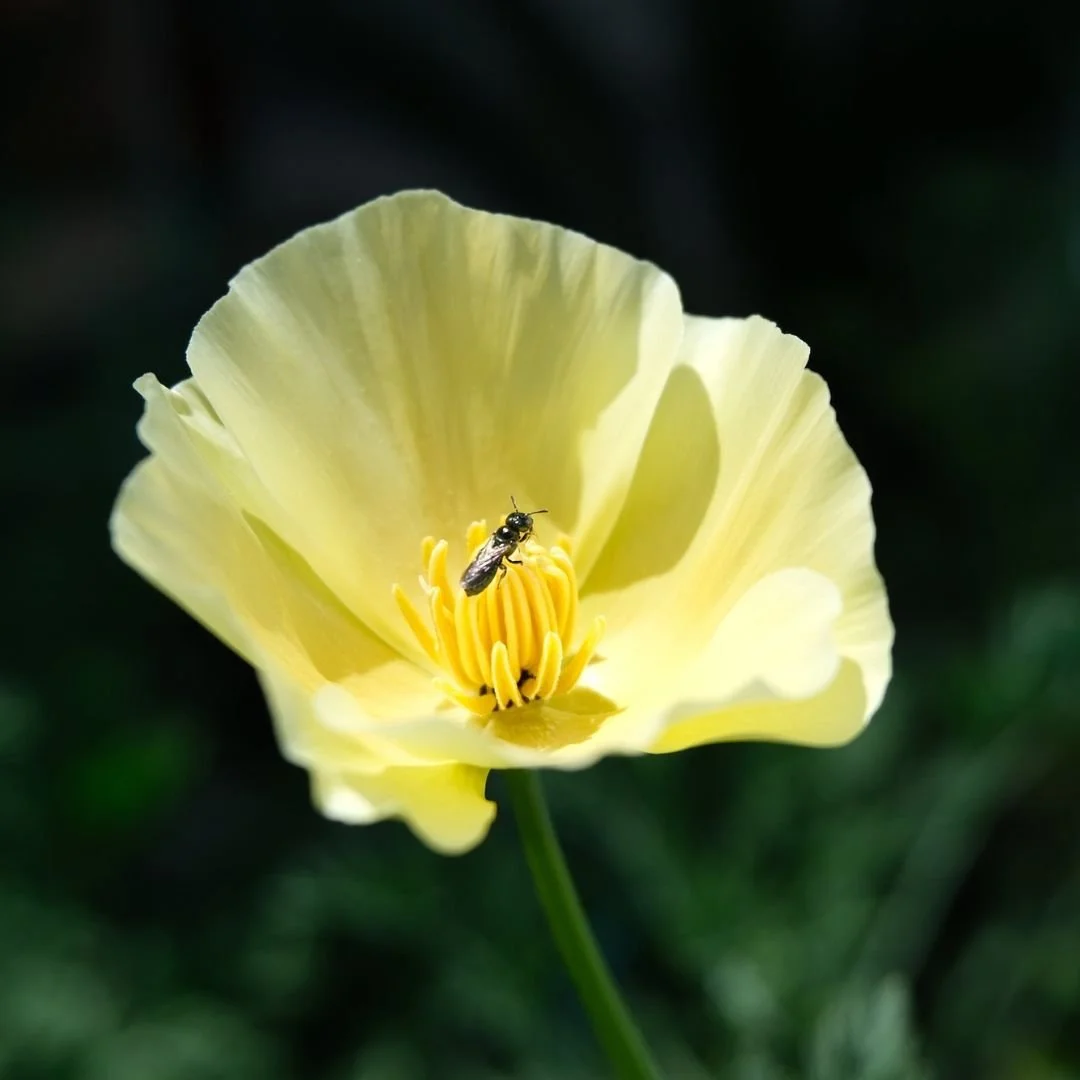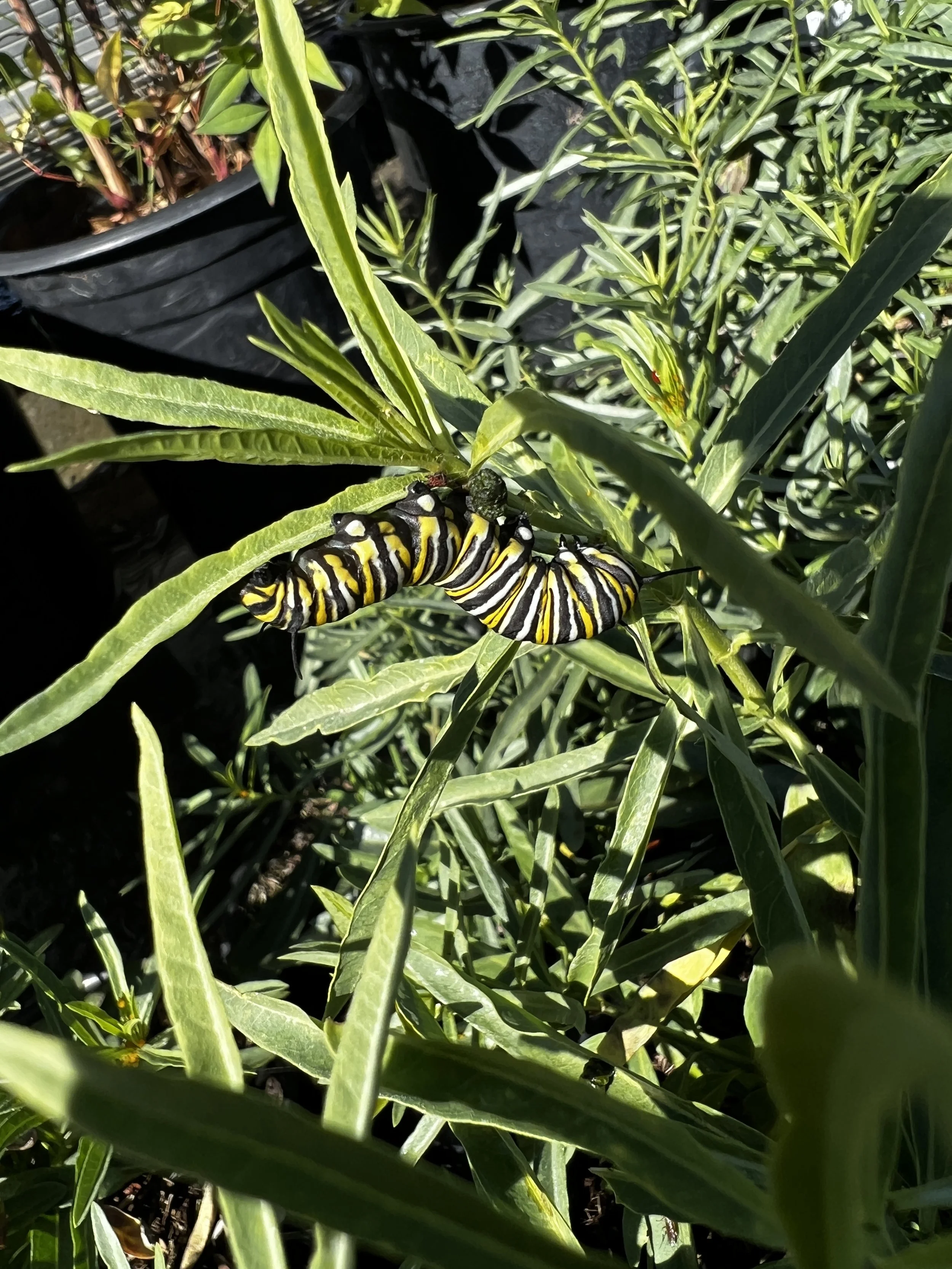Bringing native plants into your Bay Area garden is one of the best ways to support pollinators, butterflies, and beneficial wildlife while creating a colorful, low-maintenance landscape. These species are adapted to local soils and climate, so they thrive with natural rainfall and occasional summer care. Here at Capitol Wholesale Nursery, we have plenty of California native plants that will beautify your garden, support local wildlife, and require minimal watering. Here are just a few of the expansive selection of native plants we offer:
Buttermilk California Poppy supports native insects, such as the very tiny native bee shown here!
Eschscholzia californica (California Poppy)
Bright and cheerful, Eschscholzia californica fills gardens with golden-orange blooms from spring through early summer. It reseeds naturally and grows well in sunny, well-drained spots.
Best for: Slopes, borders, and wildflower meadows.
Supports: Native bees and butterflies.
Ceanothus (California Lilac)
This evergreen shrub produces dense clusters of striking blue flowers in spring. Ceanothus prefers full sun and well-drained soil, and occasional deep watering during hot, dry months helps it stay lush. Check out our viral Instagram post on an unusual use of the flowers!
Best for: Hedges, slopes, and pollinator gardens.
Supports: Bees and butterflies.
Monardella (Coyote Mint)
A fragrant perennial with vibrant blooms, Monardella draws butterflies and native bees. It thrives in sunny, dry areas and adds both scent and color to borders or containers. It comes in several varieties including Monardella macrantha (Hummingbird Coyote Mint), with red blooms, pictured in the slideshow. Other varieties have vibrant purple blooms.
Best for: Pollinator gardens and rock borders.
Supports: Butterflies, bees, and moths.
Mimulus aurantiacus “Jelly Bean Orange”, a native star perfect for your Bay Area garden!
Mimulus aurantiacus ‘Jelly Bean Orange’ (Sticky Monkeyflower)
Sticky Monkeyflower comes in many colors - red, orange, white, yellow, and more! ‘Jelly Bean Orange’ is a compact monkeyflower with bright orange blooms that hummingbirds adore. It grows best in sunny locations with well-drained soil and benefits from occasional watering in warm periods.
Best for: Containers, small gardens, and hummingbird plantings.
Supports: Hummingbirds and native bees.
Epilobium canum (California Fuchsia)
Late-summer blooms in fiery red make Epilobium canum a favorite for hummingbirds. This drought-tolerant perennial grows well in dry, sunny spots and adds late-season color to any garden.
Best for: Dry slopes and rock gardens.
Supports: Hummingbirds and pollinators.
Achillea millefolium (Yarrow)
Tough, versatile, and beloved by beneficial insects, Achillea millefolium produces flat clusters of white or pink flowers throughout summer. It’s drought-tolerant, easy to maintain, and a key part of any pollinator garden.
Best for: Pollinator strips and meadow plantings.
Supports: Ladybugs, lacewings, and hoverflies.
Asclepias speciosa (Showy Milkweed)
Asclepias speciosa and other native Asclepias are essential for endangered monarch butterflies. Attractive pink-purple flowers provide nectar for pollinators, while the leaves are food for caterpillars. (Tip: Plant in a cluster of five or more so caterpillars have enough to eat!) It grows best in sunny, well-drained soil.
Asclepias fascicularis is a host plant for the endangered Monarch butterfly. The beautiful caterpillars hatch on the plant, then use it as a food source before forming a chrysalis.
Asclepias fascicularis (Narrowleaf Milkweed)
Asclepias speciosa (shown to the right, with a huge monarch caterpillar!) is another California native form of milkweed, which are essential for endangered monarch butterflies. Its large flower clusters provide nectar for pollinators, while the leaves are food for caterpillars. (Tip: Plant in a cluster of five or more so caterpillars have enough to eat!) It grows best in sunny, well-drained soil.
Best for: Butterfly gardens and habitats.
Supports: Monarchs, bees, and other pollinators.
Heteromeles arbutifolia (Toyon or Christmas Berry)
An evergreen shrub with white flowers in summer and red berries in winter, Heteromeles arbutifolia provides habitat and food for birds. It grows well in sun or partial shade and tolerates dry conditions once established.
Best for: Wildlife gardens and privacy screens.
Supports: Birds and pollinating insects.
Eriogonum fasciculatum (California Buckwheat)
Eriogonum fasciculatum produces small white flowers that age into warm copper tones, attracting pollinators and beneficial insects. It thrives in sunny, well-drained areas and is excellent for low-water gardens. There are several different varieties of California native Eriogonum and we highly recommend exploring them all!
Best for: Dry slopes and erosion control.
Supports: Bees, butterflies, and seed-eating birds.









